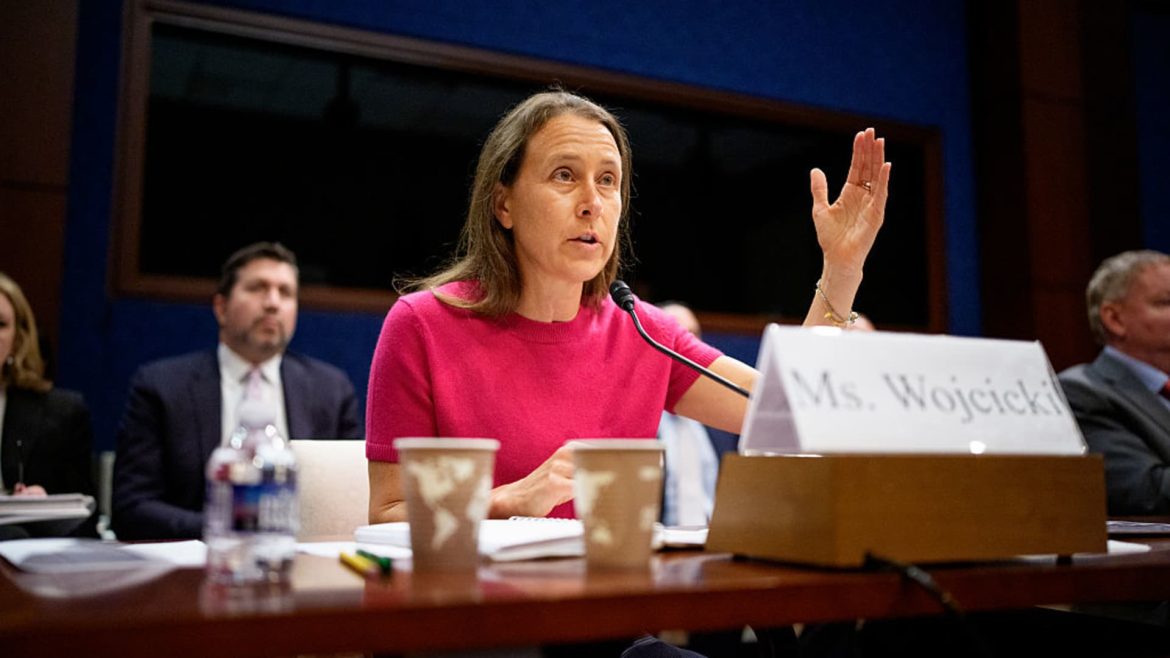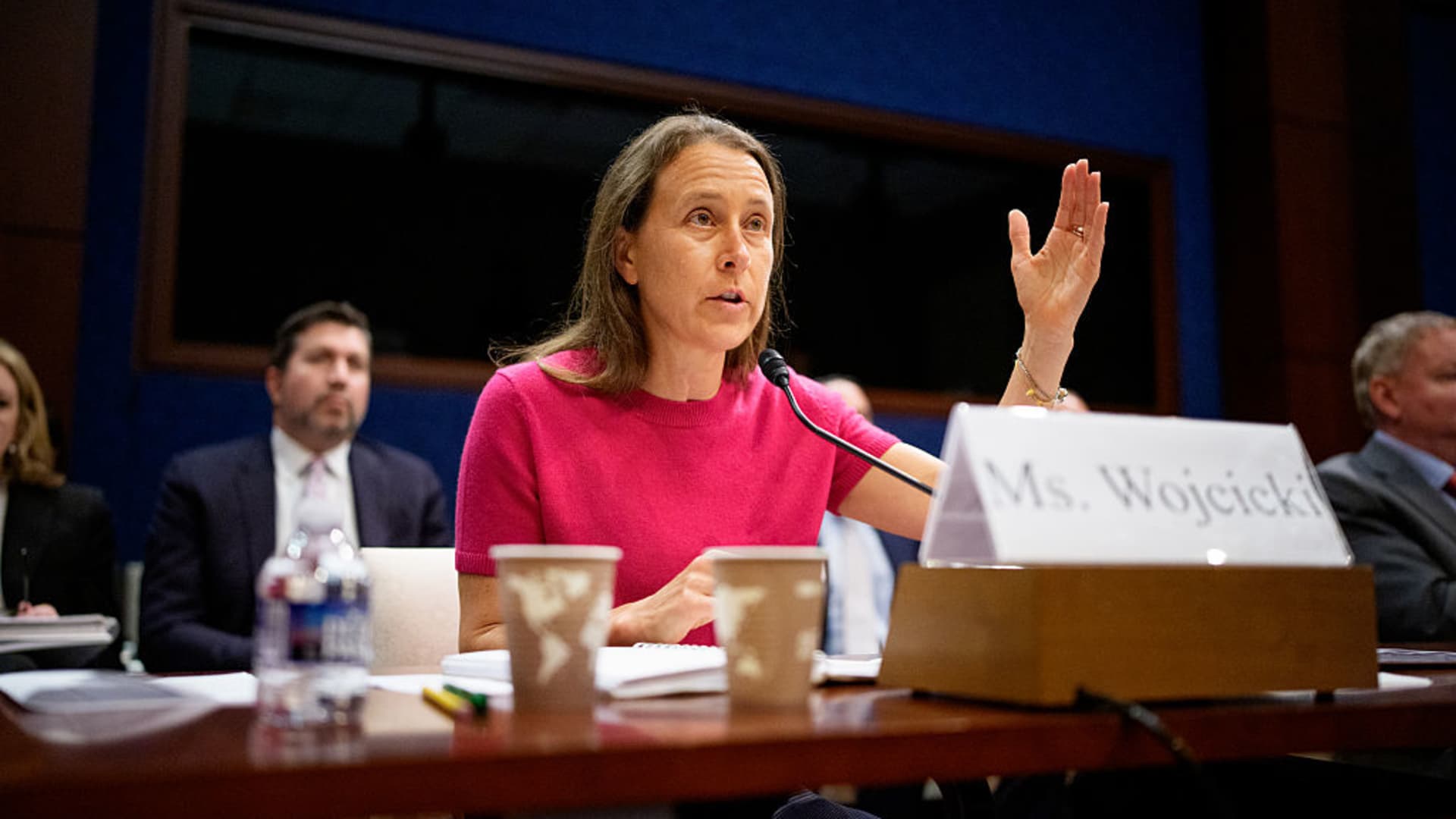Revival of 23andMe: Anne Wojcicki’s Bold Bid to Reclaim the Genetic Testing Giant
In a dramatic turn of events for 23andMe, the once high-flying genetic testing company now navigating bankruptcy, Anne Wojcicki, its co-founder and former CEO, has emerged as the leading buyer in the company’s asset auction. Her nonprofit organization, TTAM Research Institute, laid down a decisive $305 million winning bid, surpassing an offer from biotechnology giant Regeneron Pharmaceuticals. This significant transaction marks not only a financial milestone but also signals a potential new chapter for 23andMe’s future direction, leadership, and control of an invaluable cache of customer DNA data.
—
A Tumultuous Road from $6 Billion to $305 Million
23andMe’s journey has been as volatile as the genetics data it analyzes. At its peak valuation, the company was worth approximately $6 billion. However, operational struggles, market challenges, and increasing controversies around data privacy dramatically curtailed its value. The recent bankruptcy filing underscored the severity of 23andMe’s financial and strategic difficulties, forcing it into Chapter 11 bankruptcy protection to facilitate orderly creditor repayments and the sale of its assets.
Despite this downturn, the DNA data amassed by 23andMe—representing millions of customers—remains extraordinarily valuable. The company’s restart revolves largely around this trove of genetic information, which is pivotal for genetic research, drug discovery, and personalized medicine initiatives. The auction for these assets attracted fierce competition, highlighting their immense potential even as the company itself struggled.
—
Anne Wojcicki’s Strategic Re-Acquisition via TTAM Research Institute
The nonprofit TTAM Research Institute, controlled by Wojcicki, placed a $305 million bid, outbidding Regeneron’s $256 million offer during the bankruptcy auction. This move is noteworthy given the relationship between Wojcicki and the company, showcasing her intent not merely to recoup financial losses but to regain stewardship of 23andMe’s mission and assets.
Acquiring the company’s substantial genetic data portfolio and technological assets enables Wojcicki and her team to potentially redirect 23andMe’s future. By controlling the firm through a nonprofit entity, Wojcicki signals a strategic shift that may focus more on research, consumer empowerment regarding genetic information, and perhaps ethical stewardship of sensitive data rather than pure commercial gain.
—
The Stakes in Genetic Data and Market Reactions
23andMe’s DNA database, consisting of millions of customer profiles, is a double-edged sword. It carries lucrative possibilities for biomedical innovation but also ignites concerns about privacy and commercialization of personal genetic information. The auction and subsequent acquisition by Wojcicki’s nonprofit have spurred legal challenges and scrutiny from multiple U.S. states aiming to protect consumers’ genetic privacy and confirm consent procedures.
Moreover, industry observers and shareholders have expressed cautious interest but also reservations, citing potential corporate governance risks in the reacquisition by a former executive, especially through a nonprofit structure. The complexities of balancing commercial objectives with ethical considerations loom large.
—
What This Means for 23andMe’s Future
With the assets now set to transfer to TTAM Research Institute, 23andMe under Wojcicki’s renewed leadership may pivot towards:
– Advancing Research: Prioritizing scientific discovery and medical breakthroughs leveraging the extensive genetic data.
– Consumer Trust and Data Privacy: Addressing previous data security concerns and fostering transparent relationships with customers.
– Sustainable Business Models: Balancing profitability with social mission, potentially exploring new partnerships and product innovations beyond direct-to-consumer DNA testing.
– Regulatory Engagement: Navigating a complex legal landscape concerning genetic data ownership and use, especially amid state and federal oversight.
—
Conclusion: A New Chapter for a Genetic Pioneer
Anne Wojcicki’s successful bid to reclaim 23andMe’s assets for $305 million marks a pivotal moment—one that could reshape the identity and aspirations of the company she co-founded. From facing bankruptcy to potentially reinventing the enterprise under a nonprofit umbrella, this transition embodies both risk and opportunity. The ultimate trajectory will depend on how effectively Wojcicki and her team manage the interplay of innovation, ethics, customer trust, and financial viability in the evolving genetic testing industry. Watching the emergent strategies and regulatory responses will be essential to understanding the future impact of this remarkable acquisition.





